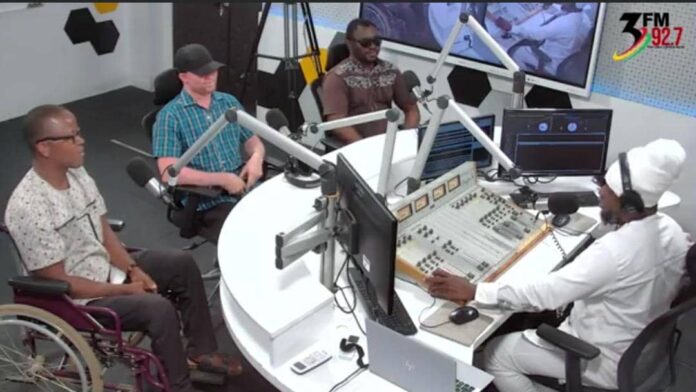Persons with disabilities are lamenting the high cost of living in Ghana which is worsened by the lack of sustainable jobs and social facilities to support them live a meaningful life.
The group explained that persons with disabilities live a very expensive life because of their special needs and the lack of an enabling environment that provides appropriate structures and infrastructure to make them move around conveniently and safely, to grant them access and make them productive.
For instance, persons living with visual impairment, albinism and the likes are forced to order taxis to pick them at their locations and drop them off at their exact destinations in order to escape the dire impact of the scorching sun on their skin and sight, and also avert the inconveniences of Ghana’s poor mass public transport system and the dangers of the country’s compromised road and environmental safety.
PWDs in Ghana are confronted with the dangers of open gutters and drainages, non-functional streets and traffic lights, lack of footbridges, poor roads, unsafe built environment, poor public safety and stigmatization.
“Being a person living with a physical disability in Ghana is very expensive so we want to plead with the government to give us sustainable jobs that can help us also compete and live a very sustainable life” the group appealed in an interview with Blakk Rasta on the 3FM Urban Blend show on October 1.
They suggest that government institutions and companies should consider a quota system that can allocate about ten percent (10%) of the jobs and employment opportunities to persons with disabilities and see them deliver.
Persons living with albinism want to see an end to the traditional customs and beliefs that prevent persons with albinism from accessing certain communities and places in Ghana. He also appealed for the high cost of treatment for skin cancer in Ghana and the prices of sunscreens to be subsidized to make them available and affordable.
The group says all that they are demanding from the society is inclusivity and empowerment because PWDs can equally fit into places and positions that other people with no physical disabilities are occupying.
“Persons with disabilities are not disabled but barriers are making them disabled, so things should be made accessible to everybody in this country” they emphasized.
Read also:
Students with special needs at the University of Ghana threaten to protest over unpaid bursaries
By Samuel Afriyie Owusu












